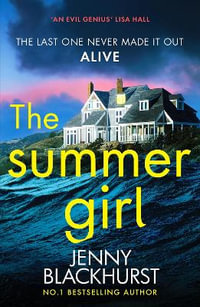Every sentence we hear is instantly analyzed by an inner grammar; just as a prism refracts a beam of light, grammar divides a stream of sound, linking diverse strings of information to different domains of mind--memory, vision, emotions, intentions. In "The Prism of Grammar," Tom Roeper brings the abstract principles behind modern grammar to life by exploring the astonishing intricacies of child language. Adult expressions provide endless puzzles for the child to solve. The individual child's solutions ("Don't uncomfortable the cat" is one example) may amuse adults but they also reveal the complexity of language and the challenges of mastering it. The tiniest utterances, says Roeper, reflect the whole mind and engage the child's free will and sense of dignity. He offers numerous and novel "explorations"--many at the cutting edge of current work--that anyone can try, even in conversation around the dinner table. They elicit how the child confronts "recursion"--the heartbeat of grammar--through endless possessives ("John's mother's friend's car"), mysterious plurals, contradictory adjectives, the marvels of ellipsis, and the deep obscurity of reference (""there" it is, right "here""). They are not tests of skill; they are tools for discovery and delight, not diagnosis. Each chapter on acquisition begins with a commonsense look at how structures work--moving from the simple to the complex--and then turns to the literary and human dimensions of grammar. One important human dimension is the role of dialect in society and in the lives of children. Roeper devotes three chapters to the structure of African-American English and the challenge of responding to linguistic prejudice. Written in a lively style, accessible and gently provocative, "The Prism of Grammar" is for parents and teachers as well as students--for everyone who wants to understand how children gain and use language--and anyone interested in the social, philosophical, and ethical implications of how we see the growing mind emerge.
Industry Reviews
"For three decades, Tom Roeper has been one of the most acute observers of semantic and grammatical subtleties in children's speech, and one of the most creative thinkers on how to connect linguistic theory with language acquisition research. It is nice to have his insights collected into a book, which will be a source of ideas for years to come." Steven Pinker, Johnstone Professor of Psychology, Harvard University, and author of The Language Instinct, Words and Rules, and The Stuff of Thought "It has been said that as children we wrestle with the deepest mysteries of our timethe mind-body problem, the existence of Godbut that adulthood's common emphasis on conformity purges this intellectual curiosity. In Tom Roeper's able hands we are treated to a journey back to this period of intense curiosity and mental growthone characterized by an exuberance of questions and comments, each reflecting intricate computations of the mind. But Roeper goes further and, with great courage and insight, attempts to show how the study of child language illuminates a much broader range of topics, from our capacity for free will to our often unconscious prejudices." Marc D. Hauser , Harvard College Professor, author of Moral Minds
























